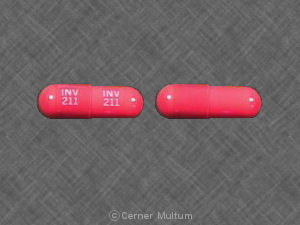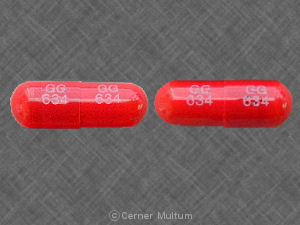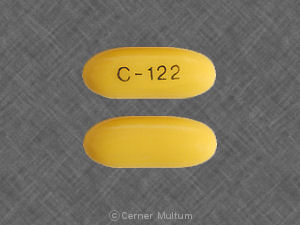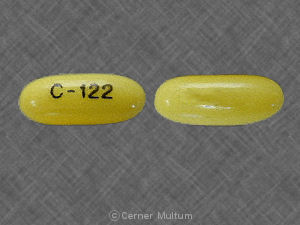What is the most important information I should know about amantadine?
You should not use amantadine if you received a nasal flu vaccine in the past 14 days.
Do not receive a nasal flu vaccine while taking amantadine, and for at least 48 hours after your last dose.
What is amantadine?
Amantadine is an antiviral medicine that blocks the actions of viruses in your body.
Amantadine is used to treat or prevent influenza A in adults and children. Amantadine may not be effective during every flu season because certain strains of the virus may be resistant to this medicine. Amantadine should not be used in place of getting a yearly flu shot. The Centers for Disease Control recommends an annual flu shot to help protect you each year from new strains of influenza virus.
Amantadine is also used to treat Parkinson's disease and "Parkinson-like" symptoms such as stiffness or tremors, shaking, and repetitive uncontrolled muscle movements that may be caused by the use of certain drugs.
Amantadine may also be used for purposes not listed in this medication guide.
What should I discuss with my healthcare provider before taking amantadine?
You should not use amantadine if you are allergic to it, or if you have received a "live" nasal flu vaccine (FluMist) within the past 14 days.
To make sure amantadine is safe for you, tell your doctor if you have ever had:
- daytime drowsiness (caused by a sleep disorder or taking certain medicines);
- a seizure;
- fluid retention, congestive heart failure;
- liver or kidney disease;
- low blood pressure, fainting spells;
- eczema;
- glaucoma;
- alcoholism or drug addiction; or
- mental illness, psychosis, or suicidal thoughts or actions.
People with Parkinson's disease may have a higher risk of skin cancer (melanoma). Talk to your doctor about this risk and what skin symptoms to watch for.
It is not known whether this medicine will harm an unborn baby. Tell your doctor if you are pregnant or plan to become pregnant.
Amantadine can pass into breast milk, but effects on the nursing baby are not known. This medicine may also affect breast milk production. You should not breast-feed while using this medicine.
Amantadine is not approved for influenza in a child younger than 1 year old. Gocovri is not approved for use by anyone younger than 18 years old.
How should I take amantadine?
Follow all directions on your prescription label. Your doctor may occasionally change your dose. Do not use this medicine in larger or smaller amounts or for longer than recommended.
If you take amantadine to treat influenza A, start taking the medicine within 24 to 48 hours after flu symptoms begin. Keep taking amantadine for the full prescribed length of time. Your symptoms may improve before the infection is completely cleared.
You may take amantadine with or without food. You may need to take this medicine only at bedtime. Follow your doctor's instructions.
Measure liquid medicine with the dosing syringe provided, or with a special dose-measuring spoon or medicine cup. If you do not have a dose-measuring device, ask your pharmacist for one.
Do not crush, chew, break, or open an extended-release capsule. Swallow it whole.
To make swallowing easier, you may open the capsule and sprinkle the medicine into a spoonful of applesauce. Swallow the mixture right away without chewing. Do not save it for later use.
Call your doctor if your symptoms do not improve, or if you have a fever with a headache, cough, skin rash, or other new symptoms.
If you take amantadine for Parkinson symptoms: You should not stop using amantadine suddenly or your condition may become worse. Stopping suddenly may also cause unpleasant withdrawal symptoms. Ask your doctor how to safely stop using this medicine.
Store at room temperature away from moisture, heat, and light. Keep the bottle tightly closed when not in use.
What happens if I miss a dose?
Skip the missed dose and take the next regularly scheduled dose. Do not take extra medicine to make up the missed dose.
Call your doctor if you miss several doses in a row.
What happens if I overdose?
Seek emergency medical attention or call the Poison Help line at 1-800-222-1222. An overdose of amantadine can be fatal.
Overdose symptoms may include confusion, agitation, behavior changes, hallucinations, severe headache or pounding in your ears, muscle stiffness, problems with balance or walking, trouble breathing, fast heartbeats, or seizure.
What should I avoid while taking amantadine?
Do not receive a nasal flu vaccine while using amantadine, and for at least 48 hours after your last dose. The vaccine may not work as well during this time, and may not fully protect you from disease.
Do not drink alcohol. Dangerous side effects could occur.
Avoid driving or operating machinery until you know how this medicine will affect you. Amantadine may impair your thinking or reactions. Some people taking amantadine have fallen asleep during normal daytime activities such as working, talking, eating, or driving. You may fall asleep suddenly, even after feeling alert. Be careful if you drive or do anything that requires you to be alert.
Avoid taking diet pills, caffeine pills, or other stimulants (such as ADHD medications) without your doctor's advice. Taking a stimulant together with amantadine can increase your risk of unpleasant side effects.
What are the possible side effects of amantadine?
Get emergency medical help if you have signs of an allergic reaction: hives; difficult breathing; swelling of your face, lips, tongue, or throat.
Call your doctor at once if you have:
- extreme drowsiness, falling asleep suddenly even after feeling alert;
- a light-headed feeling, like you might pass out;
- shortness of breath (even with mild exertion), swelling in your hands or feet;
- painful or difficult urination;
- depression, agitation, aggression, behavior changes, hallucinations, thoughts of hurting yourself;
- a seizure; or
-
severe nervous system reaction --very stiff (rigid) muscles, high fever, sweating, confusion, fast or uneven heartbeats, tremors.
You may have increased sexual urges, unusual urges to gamble, or other intense urges while taking this medicine. Talk with your doctor if this occurs.
Side effects may be more likely in older adults.
Common side effects may include:
- dizziness, falls;
- dry mouth;
- swelling in your legs or feet;
- nausea, constipation; or
- sleep problems (insomnia).
This is not a complete list of side effects and others may occur. Call your doctor for medical advice about side effects. You may report side effects to FDA at 1-800-FDA-1088.
What other drugs will affect amantadine?
Taking amantadine with other drugs that make you sleepy can worsen this effect. Ask your doctor before taking a sleeping pill, narcotic medication, muscle relaxer, or medicine for anxiety, depression, or seizures.
Tell your doctor about all your current medicines and any you start or stop using, especially:
- glaucoma medication; or
- medicine that contains sodium bicarbonate (such as Alka-Seltzer).
This list is not complete. Other drugs may interact with amantadine, including prescription and over-the-counter medicines, vitamins, and herbal products. Not all possible interactions are listed in this medication guide.
Where can I get more information?
Your pharmacist can provide more information about amantadine.
Remember, keep this and all other medicines out of the reach of children, never share your medicines with others, and use this medication only for the indication prescribed.
Every effort has been made to ensure that the information provided by Cerner Multum, Inc. ('Multum') is accurate, up-to-date, and complete, but no guarantee is made to that effect. Drug information contained herein may be time sensitive. Multum information has been compiled for use by healthcare practitioners and consumers in the United States and therefore Multum does not warrant that uses outside of the United States are appropriate, unless specifically indicated otherwise. Multum's drug information does not endorse drugs, diagnose patients or recommend therapy. Multum's drug information is an informational resource designed to assist licensed healthcare practitioners in caring for their patients and/or to serve consumers viewing this service as a supplement to, and not a substitute for, the expertise, skill, knowledge and judgment of healthcare practitioners. The absence of a warning for a given drug or drug combination in no way should be construed to indicate that the drug or drug combination is safe, effective or appropriate for any given patient. Multum does not assume any responsibility for any aspect of healthcare administered with the aid of information Multum provides. The information contained herein is not intended to cover all possible uses, directions, precautions, warnings, drug interactions, allergic reactions, or adverse effects. If you have questions about the drugs you are taking, check with your doctor, nurse or pharmacist.
Copyright 1996-2018 Cerner Multum, Inc. Version: 8.02. Revision date: 10/30/2017.



